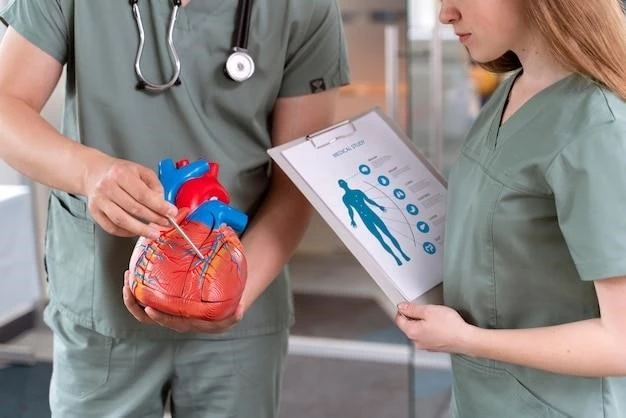Symptoms of Atrial Myxoma
Atrial myxoma symptoms can vary and may include shortness of breath, chest pain, palpitations, dizziness, and fatigue. In some cases, patients may experience symptoms similar to a stroke due to the tumor causing blockages or emboli.
Other symptoms can include swelling in the legs and feet, coughing up blood, and a feeling of fullness in the abdomen. Recognizing these signs early is crucial for prompt diagnosis and treatment of atrial myxoma.
If you experience any of these symptoms, especially if they are persistent or severe, it is important to consult a healthcare professional for proper evaluation and diagnosis.
Causes of Atrial Myxoma
The exact cause of atrial myxoma is not fully understood, but it is believed to develop from primitive multi-potent mesenchymal cells. Atrial myxoma is typically a sporadic condition, but in some cases, it can be associated with genetic syndromes such as Carney complex.
These genetic factors can predispose individuals to develop atrial myxomas; Research is ongoing to better understand the pathogenesis of these tumors and identify potential risk factors. While the exact cause may not be clear, early detection and treatment are key to managing atrial myxoma effectively.
Diagnosis and Treatment of Atrial Myxoma
Diagnosing atrial myxoma often involves a combination of imaging tests such as echocardiography, CT scans, and MRIs to visualize the tumor. Once diagnosed, treatment typically involves surgical removal of the tumor, known as a myxoma excision.
After the surgery, patients may require close monitoring to ensure no recurrence or complications. In some cases, adjuvant therapies like chemotherapy may be considered. The multidisciplinary approach involving cardiologists, cardiothoracic surgeons, and oncologists is crucial for successful management of atrial myxoma.
Atrial Myxoma Surgery⁚ What to Expect
Before atrial myxoma surgery, thorough pre-operative assessments and discussions with the surgical team will take place. The surgery itself involves opening the chest cavity, stopping the heart temporarily, removing the tumor from the atrium, and then restarting the heart.
Recovery from atrial myxoma surgery can vary but typically includes a hospital stay, follow-up appointments, and cardiac rehabilitation. Patients may experience some discomfort post-surgery, but pain management strategies will be in place. It’s important to follow the post-operative care plan provided by the healthcare team for optimal recovery.

Recurrence of Atrial Myxoma
While atrial myxoma recurrence is rare, it can occur in some cases. Regular follow-up appointments with healthcare providers are essential to monitor for any signs of recurrence post-surgery. Recurrence can happen due to incomplete removal of the tumor during the initial surgery.
Factors like genetic predispositions or familial syndromes may also play a role in recurrence. If atrial myxoma does recur, further treatment options, including additional surgery or other therapies, will be considered based on the individual’s specific case. Early detection and intervention are key in managing any potential recurrences effectively.
Atrial Myxoma in Children⁚ Special Considerations
Atrial myxoma in children presents unique challenges due to their smaller size and developing bodies. Symptoms in children may differ from those in adults, and diagnosis can be trickier. Pediatric cardiologists with expertise in congenital heart conditions play a crucial role in managing atrial myxoma in children.
Treatment considerations may include minimally invasive surgical techniques tailored to children, and long-term monitoring to ensure optimal heart function as they grow. The emotional and psychological impact on both the child and the family should also be addressed with empathy and support throughout the treatment journey.
Living with Atrial Myxoma⁚ Lifestyle Changes
After atrial myxoma treatment, adopting heart-healthy lifestyle habits is essential for overall well-being. This includes maintaining a balanced diet low in saturated fats and sodium, engaging in regular physical activity as advised by healthcare providers, and managing stress levels.
Quitting smoking and moderating alcohol consumption are also important steps to support heart health. Regular follow-up appointments with cardiologists for monitoring are crucial. Making these lifestyle changes can not only aid in recovery but also reduce the risk of cardiovascular complications in the future.
Research Advances in the Treatment of Atrial Myxoma
Ongoing research into atrial myxoma aims to improve treatment outcomes and reduce recurrence rates. Advancements include refining imaging techniques for early detection, exploring targeted therapies to inhibit tumor growth, and investigating genetic markers for personalized treatment approaches.
Clinical trials are evaluating new surgical methods, such as minimally invasive approaches, to enhance patient recovery and outcomes. Collaborative efforts between researchers, clinicians, and geneticists are paving the way for more efficient and effective treatments for atrial myxoma. Keeping abreast of these research developments is vital for advancing the field and improving patient care.
